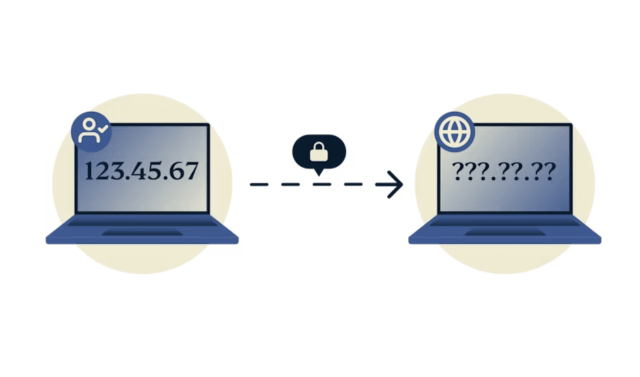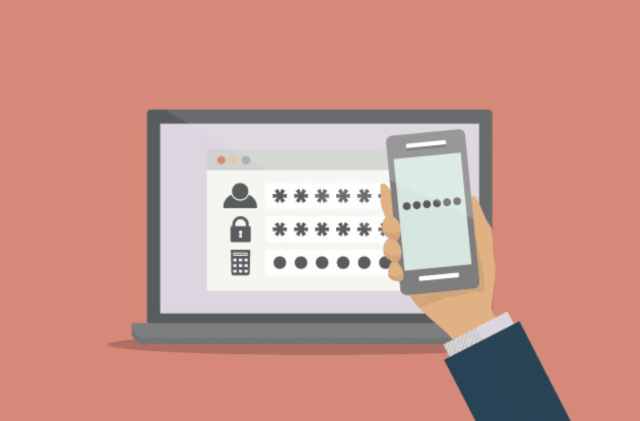Why removing your data from Google is only half the battle


We recently explored Google’s personal data removal tools and how they help you take down sensitive information from search results. But removing data from Google doesn’t mean it’s gone from the internet. Your personal details can still be stored by data brokers, public records, and third-party platforms—making true privacy much harder to achieve.
Google collects a staggering amount of information about you, including your search history, location, and behavioral data. While it offers some tools to remove this data, they only address part of the problem. To take control of your privacy, it’s important to understand how Google gathers your information, where it lingers even after removal, and what steps you can take to erase it more effectively.
ExpressVPN’s Data Removal feature helps wipe your personal information from data brokers and people-search sites. Of course, you can always request that data brokers remove your data by yourself, but it’s time-consuming and complicated. Our Data Removal feature does the heavy legwork for you. It's free with ExpressVPN's two-year plan and available to U.S. users.
How does Google get your data in the first place?
Google collects personal data in several ways, as outlined in its terms of service and privacy policy.
Here are the main methods:
- Account information: When you create a Google account, Google collects personal details such as your name, email address, and phone number.
- Usage data: Google collects data about your interactions with its services, including search queries, videos watched, and interactions with ads or other content.
- Device information: Google gathers information about devices you use to access its services. It stores information about your hardware model, operating system, IP address, and mobile network.
- Location data: If location services are enabled, Google tracks your location through your device's GPS, Wi-Fi signals, or IP address.
- Cookies and similar technologies: Google uses cache and cookies, web beacons, and other tracking technologies to collect data about your website activity.
- Third-party services: If you use third-party services integrated with Google, such as apps or websites that use Google login or analytics, they may share data with Google.
- Digital fingerprinting: Google may use browser fingerprinting techniques to collect data about your device, browser, and online activities, allowing it to identify and track your behavior without relying solely on cookies.
What type of information does Google collect?
Google collects a wide range of personally identifiable information about you. But what exactly does it collect? Terms of service pages can be lengthy and time-consuming to understand.
To save you time, we read through Google’s privacy policy to find out precisely what types of information it collects. Here’s an easy-to-understand overview of the types of data Google gathers and keeps:
1. Information you provide
Google collects information you actively share, like:
- Your name, email address, phone number, and payment details during account setup or when you make a purchase.
- Content you create or upload, such as documents in Google Drive, emails in Gmail, and photos in Google Photos.
- Communications through Google services, such as comments on YouTube or reviews on Google Maps.
2. Activity data
Google tracks how you use its services to understand your habits and preferences. This includes:
- Searches and interactions: Queries you type into Google Search, YouTube videos you watch, or ads you click on.
- App and browsing activity: Websites and apps you visit that use Google services, such as Google Ads or Analytics.
- Voice and audio data: Interactions with Google Assistant, such as commands or questions you’ve asked.
- Purchase information: Details about transactions you’ve made using Google services.
3. Device information
When you use Google on any device, it collects technical data about that device, including:
- Hardware and software details: Device model, operating system, browser type, and app versions.
- Unique identifiers: Information like your device ID or serial number.
- Network details: Your mobile network, IP address, and connection speed.
4. Location data
If you’ve enabled location services, Google gathers data about where you are. This can come from:
- GPS signals.
- Nearby Wi-Fi networks and Bluetooth beacons.
- Your IP address or the device's sensor data.
Read more: How does Google know your location when you’re using a VPN?
5. Cookies and tracking technologies
Google uses cookies, web beacons, and other tracking methods to:
- Remember your preferences (like your language settings).
- Deliver personalized ads based on your activity.
- Track interactions across its platforms and third-party websites.
Read more: 3 browsers that block third-party cookies by default
6. Information from third parties
Google also collects data from other sources, such as:
- Advertisers, partners, and developers that use Google tools like Google Ads or Analytics.
- Publicly available information or information shared by others, such as reviews or social media posts mentioning you.
Since Google gathers information from third parties, simply asking Google to remove your data isn’t enough. Other websites, advertisers, and data brokers will still have your data long after Google deletes it from its servers.
ExpressVPN’s Data Removal tool protects you against identity theft by systematically requesting data brokers and people-search sites to remove your data. In a time where it often feels impossible to manage your privacy, this feature puts the control back in your hands—where it belongs. It's free with ExpressVPN's two-year plan and available to U.S. users.
Why asking Google to remove your data isn’t enough
Google offers tools to remove certain personal details—like your phone number or home address—from search results. They’re a useful first step, but they don’t make your data disappear completely.
When Google delists content, it only removes it from search results. The original data is still out there—on public records, data broker sites, or third-party platforms. That means it can still be found, shared, or even sold—long after Google removes it from search results.
Google also isn’t the only company tracking or storing your information. Data brokers, social media platforms, and other websites may still have your details. These sources often sell or share your information. This can expose it to potential misuse and means removing data from Google doesn’t erase it from the broader internet.
To truly protect your privacy, you need a more comprehensive approach. ExpressVPN’s ID Defender Data Removal service goes beyond just delisting. It helps identify where your data exists online, works to remove it from the original sources, and monitors for future exposures—giving you control over your digital footprint. Not sure about signing up? You can try our free scan first to see how much of your data is exposed on data broker sites. It's available to anyone in the U.S. for free, no signup or credit card details needed.
How to remove more personal data
Removing your personal data from Google is just one step. To fully take control of your information, you’ll need to target other sources, such as data brokers, public records, and third-party websites. Here’s how to do it:
1. Find out where your data appears
Start by searching your name, email address, or phone number on Google. Look for mentions in:
- People-search sites (e.g., Whitepages, Spokeo, MyLife)
- Business directories
- Data broker platforms
- Public records databases
For a deeper search, try a tool like Google Alerts to notify you when your name appears in new results.
2. Request data removal from websites
If your personal details show up on a website, check if the site has a privacy request or opt-out page. You’ll usually find this in the privacy policy or terms of service. If not, contact the website admin and ask for removal.
3. Use a data removal tool
Manually removing your information from dozens of websites is time-consuming. Services like ExpressVPN’s ID Defender do the hard work for you by:
- Identifying where your data appears
- Submitting removal requests on your behalf
- Monitoring for reappearance and ensuring ongoing removal
This automates what would otherwise take hours of searching and submitting forms.
4. Protect your data moving forward
Once you’ve cleaned up your data, take steps to prevent it from being collected again:
- Use a high-quality VPN like ExpressVPN to mask your IP address and browsing activity
- Limit personal details on social media and public profiles
- Turn off tracking settings in your Google and social media accounts
- Use private search engines like DuckDuckGo to avoid search history tracking
How to stop Google from collecting your data in the first place
Deleting your data from Google is one thing. Stopping it from collecting more? That’s the real challenge. Google tracks people in ways that go beyond basic cookies, and with fingerprinting on the rise, it’s getting even harder to avoid. Here’s how to cut down on what Google knows about you:
1. Ditch Chrome for a privacy-first browser
Chrome is a data-harvesting machine. If you want to reduce tracking, switch to Brave, Firefox, or DuckDuckGo. These browsers block trackers, stop fingerprinting, and don’t feed data back to Google.
2. Lock down your Google settings
Google buries privacy controls in its settings, but they’re worth digging into.
- Turn off location history so Google stops tracking everywhere you go.
- Disable ad personalization to limit the profiles advertisers build on you.
- Set auto-delete to wipe search and activity data on a rolling basis.
- Use incognito mode when searching for sensitive stuff (but don’t rely on it entirely).
3. Block third-party tracking
Even if you never use Google Search, tons of websites use Google Analytics and Ads to track you.
- Use a VPN like ExpressVPN to mask your IP and location.
- Block cookies and trackers with browser extensions like uBlock Origin and Privacy Badger.
- Opt out of tracking at sites like YourAdChoices.
4. Google is bringing back digital fingerprinting—here’s why that’s bad
Google is ditching third-party cookies, but tracking isn’t going away. Instead, it’s shifting to fingerprinting, a harder-to-block method. Starting this month (February 2025), Google will use fingerprinting for ad tracking, profiling users based on unique device details like:
- Device type
- Operating system
- Browser settings
- Language setting
- Time-zone
- Browser extensions
- Installed plugins
- Screen resolution
If you’re concerned about fingerprinting, consider taking steps to counteract it.
- Use a privacy-focused browser like Brave or Firefox, which block fingerprinting by default.
- Change your browser settings often to make your fingerprint less stable.
- Use extensions like Canvas Blocker to mess with fingerprinting scripts.
- Hide your IP with a VPN to prevent tracking across sites.
FAQ: About removing personal data from Google
How do I delete personal data from the internet?
ExpressVPN’s Data Removal feature scours the internet to remove your personal data so you don’t need to spend time doing it.
How to remove personal information from Google for free?
How can I delete my data from Google?
Can you block yourself from being Googled?
Does deleting Google data actually delete it?
How do I delete Google data permanently?
Does Google keep your history after you delete it?
How can I remove my personal information from Google?
Take the first step to protect yourself online. Try ExpressVPN risk-free.
Get ExpressVPN
















